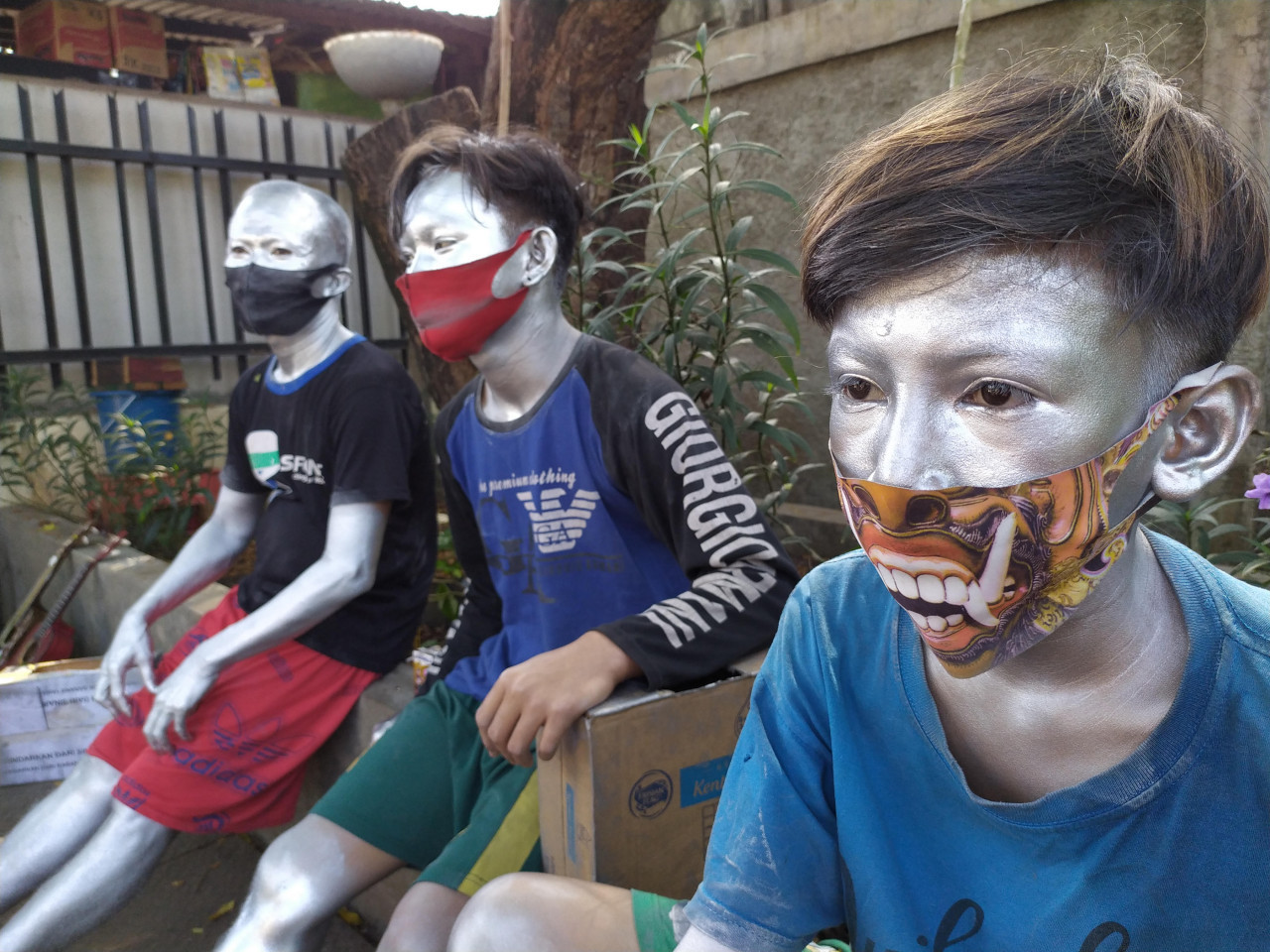Popular Reads
Top Results
Can't find what you're looking for?
View all search resultsPopular Reads
Top Results
Can't find what you're looking for?
View all search resultsCOVID-19 crisis prompts rise in ‘silver humans’ in Jakarta
Social affairs agencies in the capital have recorded a marked rise in the number of silver-painted people looking for handouts during the health crisis.
Change text size
Gift Premium Articles
to Anyone
T
he COVID-19 health crisis is said to have driven up the number of manusia perak (silver human), a kind of street performer covered in silver metallic paint armed with a cardboard box to collect donations, making their rounds on the streets in the capital city.
“The manusia perak phenomenon is one of the impacts of [the pandemic],” Central Jakarta Social Affairs Agency head Ngapuli Perangin-angin said on Wednesday, as quoted by antaranews.com.
Ngapuli said that the emergence of these “silver men” had never happened before, indicating that the crisis had so severely impacted people’s finances that they were resorting to alternative means of earning an income, including by becoming silver human.
He added that he had frequently come across teenaged silver human who were neither orphans nor street children. In such cases, the agency usually contacted their parents to ask them to come collect the teens and get them off the streets.
“We provide them with the understanding that [they must] protect their children, so [the children] will not do it again,” Ngapuli said.
Earlier in September, the North Jakarta Public Order Agency carried out an “operation” targeting manusia perak in several areas, including Jl. Kelapa Hybrida in Kelapa Gading residential area. During the operation, the agency discovered a boy covered in silver metallic paint asking for money from passersby.
Muri, a North Jakarta Public Order Agency officer, said that the agency had received frequent reports from the public about manusia perak, that their presence made residents feel uncomfortable. Other reports said that the manusia perak disrupted traffic at intersections or accosted passersby.
Read also: Smelling a rat: How rodents sniff out fake beggars
Ngapuli said that manusia perak were commonly spotted in the three Central Jakarta districts of Gambir, Tanah Abang and Menteng, which were usually bustling during office hours.
He said that the social affairs agency, along with the Central Jakarta Public Order Agency, had also conducted social welfare operations to offer assistance to people affected by the health crisis, including manusia perak. However, many simply ran away when the agencies’ officers tried to approach them.
Ngapuli urged members of the public to avoid giving money to people begging on the streets and instead suggested making a donation through charitable organizations.
Last month, tribunnews.com reported an increase in people with children seen begging in populous areas of Medan, North Sumatra, including the intersection at Sei Sikambing Market and on Jl. Gatot Subroto.
Diah, a woman quoted in the report, said that she brought her child along because no one was at home to watch them. At the same time, however, she admitted that she received more handouts when her child was with her than when she was alone.
Separately, a former cigarette vendor seller said they had "borrowed" someone else’s child while they were out begging for three to four hours. (jes)










